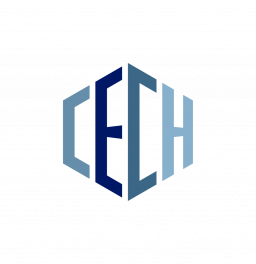The Research Unit is defined by a General Project known as Estudos Clássicos e Humanísticos – Cultura e Património da Humanidade (Classical and Humanistic Studies – Culture and World Heritage). This project is pursued by a team of integrated researchers and expands beyond traditional literary genres to encompass both literary and non-literary texts. It is structured around two thematic pillars: Monumenta Graeca & Latina and Classical and Portuguese Cultural Heritage. Together, these pillars define the unit’s essential and collective objective.
With the Scientific Coordinator and Vice-Coordinator of the CECH as the chief and co-chief researchers, respectively, the General Project is structured around specific content for each of its thematic pillars:
Monumenta Graeca & Latina
This theme covers a comprehensive study of authors and works, including written, archaeological, and artistic pieces from the Greek and Latin cultural spheres. These artefacts span from Classical Antiquity through the Middle Ages and into Renaissance Humanism. The epistemological methodologies used draw from the disciplines of language, literature, culture, history, archaeology, philosophy, and art, namely theatre and music.
With a long tradition in exploring both tangible and intangible aspects of the classical and humanistic corpus, the researchers associated with this pillar focus on two main areas:
- critical edition, commentary and translation of Greek and Latin texts into Portuguese, some of which remain unpublished or in need of renovation (such as primary written sources that are unavailable in their original versions, but are nonetheless necessary for other fields of knowledge, such as Literature, History, Philosophy, Theology, and the Arts);
- exploration of a wide range of subjects, including poetry, prose, theatre, historiography, political practice, and theory, law, religion, philosophy and ethics, rhetoric, linguistics, music and musicology, everyday life, intercultural dialogue, Neo-Latin studies, Jesuit studies, science and education history, biblical studies, and urbanism.
Classical and Portuguese Cultural Heritage
This theme encompasses the exploration of the reception of the classical matrix and its influence on shaping cultural identities in Europe, particularly Portugal, and in regions with connections to Portuguese culture. Recognised as a shared legacy from the past, classical culture has long been regarded as a universal heritage, serving as an anchor-corpus of humanity and providing a sense of belonging in potentially globalised societies undergoing identity crises. The proposed approach to studying this heritage is guided by a critical and self-reflective perspective, exploring the fertile tension between the recovery of tradition and its creative renovation. Researchers in this area are at the forefront of hermeneutic research into the classical heritage. Their primary areas of focus include:
- studies on the reception of classical cultural heritage in various domains, such as language, literature, culture, philosophy, arts, and sciences, across Europe and associated countries;
- studies on Portuguese cultural heritage through the lens of continuity with or breaking off from the classical heritage.
During the four-year period from 2020 to 2023, several Secondary Projects were also developed, each with limited teams of researchers. These projects centred on more specific lines of inquiry, while still complementing the thematic pillars of the Centre’s General Project.
Researchers
Scientific Coordinator of the Centre for Classical and Humanistic Studies
Contact: cech.carmensoares@gmail.com
All CECH researchers are part of the General Project
Events
Transfer & Applied Knowledge
Research Question:
What is the perception of the municipalities covered by the Regional Directorate for Culture of the Centre (DRCC) regarding the Intangible Cultural Heritage (ICH) practiced in their territories?
This is an exploratory study aimed at the following objectives: characterizing the manifestations of ICH identified by the responsible authorities of each municipality; raising awareness among municipalities and populations about the importance of systematic inventorying of their ICH, particularly urgent in the case of manifestations at risk of disappearing.
Scientific Coordination:
Centre for Classical and Humanistic Studies of the University of Coimbra
Principal Coordinator:
Carmen Soares
Deputy Coordinator:
Paula Barata Dias
Scientific Coordination Assistance:
Carlos Baptista
Patrícia de Gomensoro
Research and Text Writing:
Ana Maria Proserpio; Carlos Baptista; Cinthia Otto Marques; Josefina Salvado; Maria José Araújo & Patrícia Gomensoro

